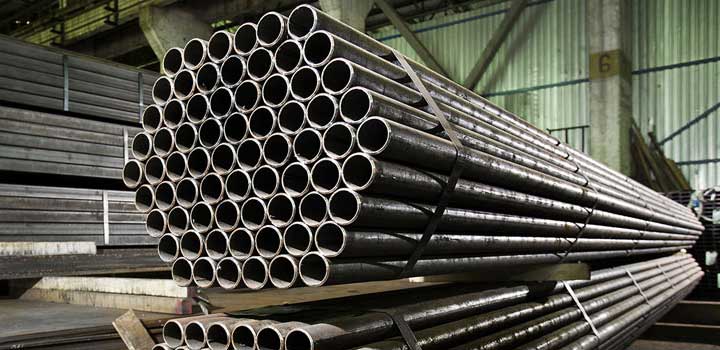Introduction to BS 6323 Part 5 Specifications Maintaining precise length tolerances in St 45 ERW pipes is crucial for industries that require exact dimensions for assembly and installation. These tolerances ensure uniformity in production, which is essential for efficient manufacturing processes across various sectors. By adhering to these standards, manufacturers can achieve seamless integration of components within complex systems, reducing downtime and enhancing overall productivity. The consistency in dimensions also minimizes material wastage and streamlines the supply chain. Standard Length Tolerances for BS 6323 Grade CFS 5 Tubes The presence of carbon in BS 6323-5 tubes significantly enhances their performance characteristics. With an average carbon content of 0.25%, these tubes exhibit increased strength and hardness, making them suitable for high-pressure environments. The balance between weldability and machinability ensures that they can be fabricated efficiently without compromising structural integrity. This dual advantage makes them ideal for demanding applications where reliability and durability are paramount. Chemical Composition of BS 6323-5 The yield strength of 350 MPa signifies the level of stress the tube can endure before deforming permanently. This property ensures robust structural integrity under typical operating conditions, enabling it to withstand varying loads and pressures effectively. Furthermore, the tensile strength of 540 MPa highlights its ability to handle substantial stress without fracturing, making it highly reliable for critical applications. Its excellent ductility and formability further contribute to its versatility in diverse industrial settings. The mechanical properties of BS 6323-5 grade tubes offer numerous advantages. Their high tensile strength ensures longevity and resilience against external forces, while their ductility allows for flexible shaping and bending without compromising structural integrity. These attributes collectively enhance their usability across multiple industries, providing consistent performance and minimizing maintenance requirements. Mechanical Properties of BS 6323-5 Equivalent Grades to EN 1.0408 These tubes are renowned for their exceptional formability, allowing them to be easily shaped and manipulated during manufacturing. Their mechanical properties include superior ductility and bending strength, facilitating processes like bending, flaring, and forming without cracking or losing design strength. This ease of shaping not only enhances their adaptability but also reduces production costs and improves efficiency by minimizing operational hurdles. Diameter Tolerance in St 45 ERW Pipes Material Testing Procedures for BS 6323-5 Tubes EN 1.0408 material finds extensive use in automotive and engineering sectors due to its balanced combination of strength, hardness, and machinability. Containing approximately 0.40% carbon, it optimizes mechanical properties, making it ideal for components requiring high strength and wear resistance, such as bolts, shafts, and gears. Its ability to undergo various heat treatments enhances its versatility, positioning it as a preferred choice for engineering applications. Practical Applications of BS 6323 Part V ERW Tubes DN15 Galvanized Pipe,Galvanized Tubing,Galvanized Fittings,Galvanised Steel Tube Tianjin Gongjiantiangang Steel Pipe Co., Ltd. , https://www.tjgjtggg.com
Table of Contents
Grade
BS 6323 Part 5
Wall Thickness
Customizable
Lengths
12m / 6m / 6.4m
End Configurations
Plain / Threaded / Beveled
Processing Services
Type of Pipe
ERW / CDW
Heat Treatment
Stress Relieved (BK+S)
Internal Diameter Accuracy
H7 / H8 / H9
Surface Finish
Ra0.2~0.8um
Thread Configurations
Ensuring Consistent Length Tolerances in St 45 ERW Pipes
Component Length (mm)
OD 30-100 mm
OD 100-254 mm
10-100
+1.0/-0
+2.0/-0
100-600
+2.0/-0
+3.0/-0
600-1200
+3.0/-0
+4.0/-0
1200-5000
+5.0/-0
+6.0/-0
Carbon Content in BS 6323-5 ERW Tubes Enhances Performance
Key Mechanical Properties of BS 6323-5 Grade Tubes
Yield Strength
Tensile Strength
350 MPa
540 MPa
Standard
EN
DIN 23912
EN 1.0408 / St 45
Formability of BS 6323 Grade HFS 5 Tubes
T/D Ratio
Tolerance Limits
≥0.05
1
0.05 > T/D ≥ 0.025
1.5
< 0.025
2
Applications of EN 1.0408 Material in Automotive and Engineering
In conclusion, BS 6323 Part 5 specifications define a versatile and robust material that caters to a wide range of industrial needs. Its precision in dimensions, coupled with its excellent mechanical properties, ensures reliability and efficiency across multiple sectors. Whether it's supporting water and gas infrastructure or driving innovation in automotive and engineering, these tubes play a pivotal role in modern industrial landscapes.
Carbon
0.4%
Silicon
0.35%
Manganese
0.9%
Phosphorus
0.05%
Sulfur
0.05%
Iron
98.9%